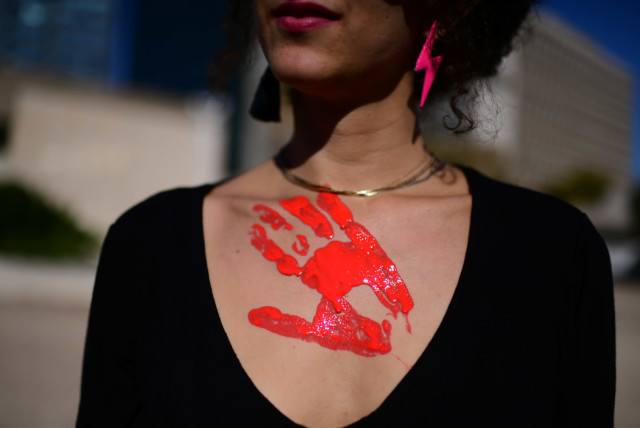Court rules Berlin rabbi accused of sexual misconduct should not hold positions of authority

Berlin Rabbi Reuven Yaacobov is accused of using his rabbinical status to force women to comply with his sexual demands over more than a decade.
A Jewish religious court has determined that a Berlin rabbi accused of manipulating women into sexual contact should not hold any positions of religious authority in the Jewish world.
The decision, announced Wednesday morning, follows days of testimony from at least 15 women who had accused Reuven Yaacobov of using his rabbinical status to force them to comply with his sexual demands over more than a decade. Yaacobov also testified last week before the court, known as a beit din, after the court delayed its process to accommodate him.
“Reuven Yaacobov is not fit to hold a rabbinical position,” the beit din said in a letter to the plaintiffs who had testified, and who were authorized to share the letter publicly.
“Accordingly, he should not serve in any religious, rabbinical, or educational positions such as a Rabbi, shochet (ritual slaughterer), mohel (circumciser), sofer (scribe), and teacher,” the letter said.
Yaacobov had filled all of those roles in Berlin’s Jewish community over nearly two decades. The Jewish Community of Berlin, the communal umbrella organization, had fired him on May 31, one day after hearing testimony from several women who accused him of sexual misconduct. They and other women came forward afterward to give the beit din their accounts of being preyed upon by Yaacobov, whom they said had taken advantage of their naivete or emotional vulnerability to use religious arguments to lure them into sexual relations.
“I am happy that his status has been removed,” one of the women who testified before the beit din told the Jewish Telegraphic Agency on Wednesday. “I fear he will continue to influence people, to manipulate and do his things, but the decision means there will be fewer victims.
“The more public it is, the better,” added the woman, who asked to remain anonymous because she said she feared Yaacobov. “If everyone in the whole world shares this, he will have less chances to do his things elsewhere.”
In a public statement, the rabbinical court said its decisions reflected a clear expression of communal values.
“A person who harasses or abuses others is not suitable to hold a rabbinical position and should not be in religious, rabbinical or educational positions,” the court said.
In a statement issued through his attorney, Yaacobov disputed the court’s legitimacy under Jewish law and said its process had been “one-sided,” with his guilt predetermined. He also said the court and he were operating under “two different worldviews as far as Judaism is concerned” because the court is made of Ashkenazi rabbis and he is a Sephardic Jew.
“I do not accept the beit din’s decision and will contradict it in another beit din,” he said in the statement. “Today I know more than before that it was a targeted campaign against me, and that beit din was part of that campaign. I remain strong and will continue to fight until the full truth comes out and all the people who organized this campaign will be punished by the court.”
Yaacobov also noted in the statement that the beit din had not ordained him and thus could not rescind his rabbinic ordination. While the beit din did not claim to rescind his ordination, Rabbi Avichai Apel — who is on the board of ORD, Germany’s Orthodox rabbinical organization, and was one of the rabbis sitting on the bet din — said his group has been in touch with the Israel-based organization that ordained Yaacobov.
The ORD said that all circumcisions and bar mitzvahs carried out by Yaacobov remain valid. Apel told JTA anyone who had concerns about the status of a Torah scroll written by Yaacobov could contact the organization.
The rabbis of the beit din issued several other calls intended to manage the fallout of the case, which has particularly impacted a subset of Germany’s Russian-speaking Jewish community. The rabbis called on the general public to “continue to treat his wife and children with respect,” and to ignore any photos that the accused might publish of his accusers.
Some of the women who spoke to JTA previously said that when they tried to extricate themselves from Yaacobov’s influence, he told them he had taken compromising photos or videos of them and others and would release them.
Apel said the beit din warned Yaacobov not to release any such photos, if he had them.
The rabbis of the beit din also urged the Jewish Community of Berlin to reopen the Sephardic Synagogue, which has been locked since Yaacobov’s firing, as swiftly as possible, and to provide financial support to the women to cover the costs of psychological treatment “for the trauma they have suffered and its consequences.”
Another woman who had testified before the beit din told JTA on Wednesday that the swift action against Yaacobov over the last six weeks reflected the right approach to allegations of sexual misconduct.
“If you want to be sure that something is just a rumor, you have to investigate it,” the woman said. “The person with the resources and the power and the knowledge, they need to investigate.”
Jerusalem Post Store
`; document.getElementById("linkPremium").innerHTML = cont; var divWithLink = document.getElementById("premium-link"); if (divWithLink !== null && divWithLink !== 'undefined') { divWithLink.style.border = "solid 1px #cb0f3e"; divWithLink.style.textAlign = "center"; divWithLink.style.marginBottom = "15px"; divWithLink.style.marginTop = "15px"; divWithLink.style.width = "100%"; divWithLink.style.backgroundColor = "#122952"; divWithLink.style.color = "#ffffff"; divWithLink.style.lineHeight = "1.5"; } } (function (v, i) { });

